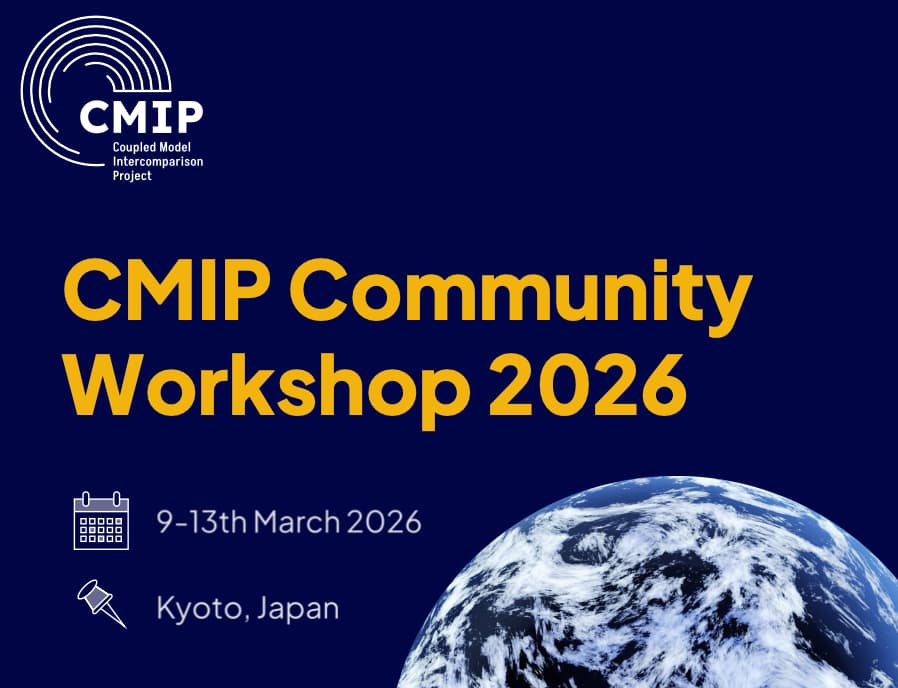The CMIP Community Workshop 2026 will bring together a growing, and increasingly diverse, community of Earth system scientists, partners, and stakeholders. It will be an opportunity to discuss the latest developments in Earth system and coupled modelling, leverage the wealth of the CMIP6 analyses and explore the updated forcings and early results from CMIP7 simulations, including new experimental designs and MIPs. It will also highlight the expanding observation-modelling interface, address strategies for streamlining the climate information chain, and forge a vision and global partnerships to deliver sustained and high quality climate information to all users. The workshop will also provide ample opportunities for networking, collaboration, and knowledge exchange, fostering new partnerships with the CMIP community. In addition, there will be an Early-Career Scientist hackathon, designed and developed by our Fresh Eyes on CMIP community.
The Scientific Organising Committee of the CMIP Community Workshop 2026 seeks to co-create the workshop as a bottom-up community-driven effort driven by scientists, practitioners and stakeholders. Take part by proposing your session now! The call for session proposals is open until 25 April 2025.
Workshop themes and sub-themes
Progress in understanding historical climate change and associated impacts
- Improvements and biases in model performance
- Characterising model behaviour
- CMIP Rapid Evaluation Framework
- Use of observations and proxies for evaluating models
- Natural and anthropogenic climate forcing and attributing causes of change in the historical record
Understanding climate system responses, feedbacks and thresholds
- Patterns of sea surface temperature change
- Changing weather patterns
- Water-carbon-climate nexus
- Points of no return/ratcheting including tipping points and overshoots
- Uncertainty quantification in climate projections
- Regional applications including but not limited to Asia and North-East Pacific
- Impacts on social-ecological systems
Synthesising information across the multiverse of models
- Making data accessible for users and stakeholders
- Models at high resolution
- Emulators of CMIP models
- Applications of artificial intelligence and machine learning in CMIP
- Evaluating risk under different storylines


